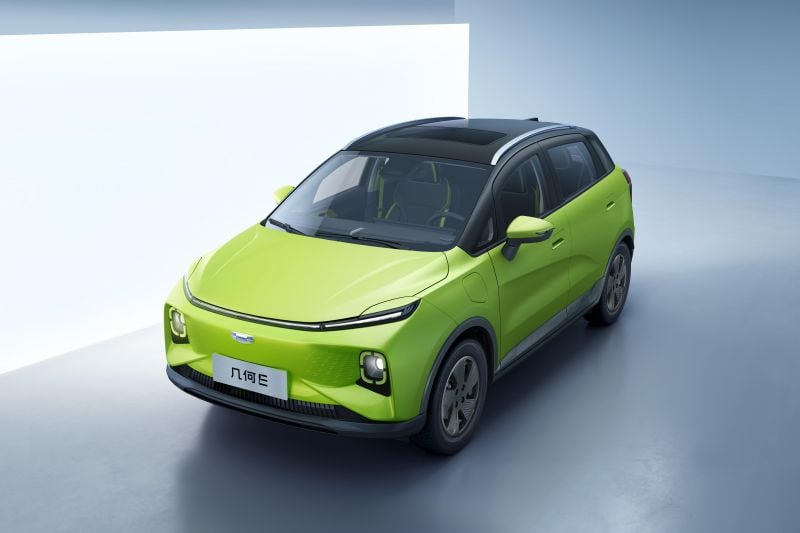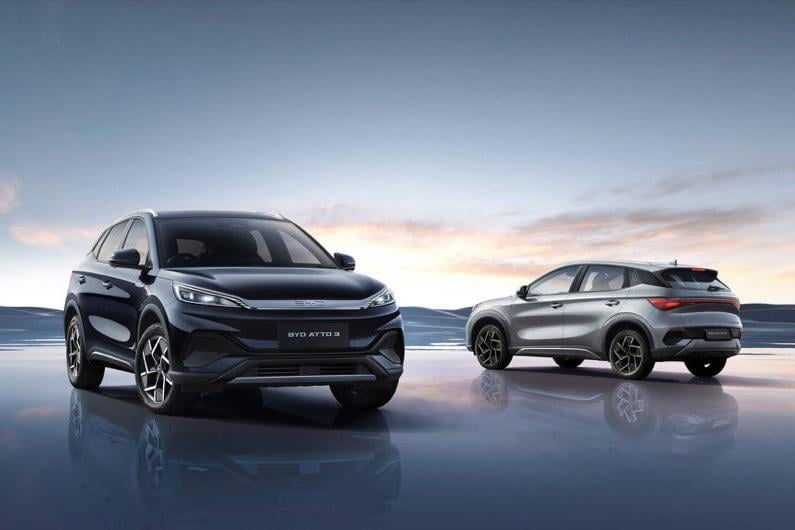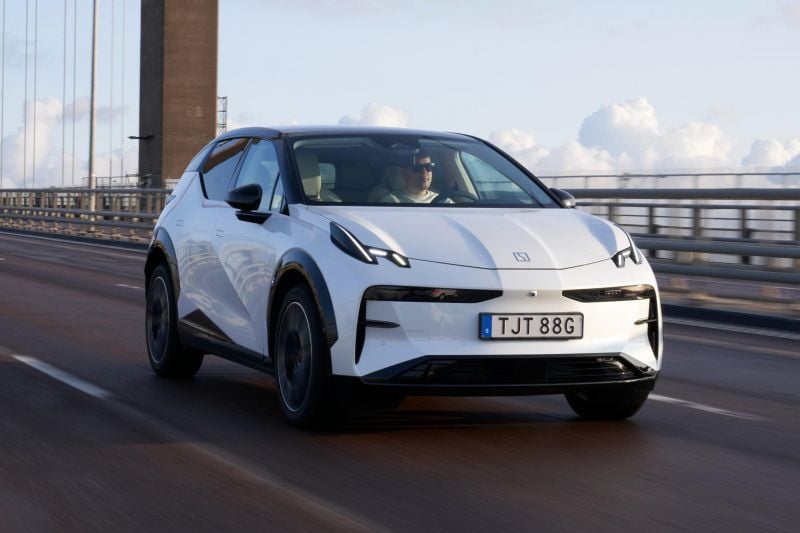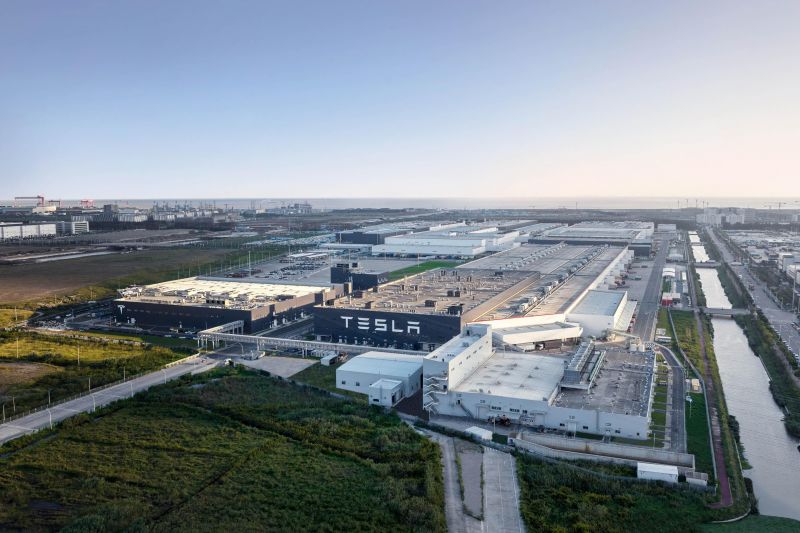China’s electrical automobile (EV) trade has been capable of develop on account of vital authorities monetary help – however an trade skilled says its success can’t be dismissed.
The European Fee earlier this month introduced tariffs starting from 17.4 per cent to 38.1 per cent on Chinese language EVs, which adopted the US imposing a 100 per cent tariff on all Chinese language EVs in Might.
European lawmakers are additionally engaged in a probe into whether or not Chinese language carmakers have been given a leg-up from the nation’s authorities by way of subsidies, on account of conclude in November.
Earlier this month, Scott Kennedy – Senior Adviser to the US think-tank Centre For Strategic and Worldwide Research (CSIS) – supplied an in-depth evaluation of Chinese language EVs which uncovered huge funding from the federal government to assist prop up the trade.
In accordance with Mr Kennedy, between 2009 and 2023 the Chinese language authorities is conservatively estimated to have spent US$230.8 billion (A$348.6 billion) on monetary help for its EV makers.
This has regularly elevated from $US60.7 billion (A$91.7b) from 2009-2017 – a mean of US$7.59 billion (A$11.5b) annually – to US$30.1 billion (A$45.5b) in 2021 and US$45.2 billion (A$68.3b) in 2023.
Although these subsidies are primarily based on conservative estimates, they cowl elements equivalent to purchaser rebates, gross sales tax exemptions, infrastructure subsidies, analysis and growth grants, and authorities procurement.
The impression of those elements has additionally modified through the years, from rebates making up a majority of help to gross sales tax exemptions accounting for the lion’s share of EV subsidisation.
These elements have basically pushed down the value for consumers, or allowed carmakers to get a head begin within the trade. Nonetheless, the common quantity every automobile has successfully been subsidised has fallen from US$13,860 (A$20,932) to US$4588 (A$6929).
The figures additionally don’t embrace provide chain subsidies, which – for China’s burgeoning EV battery trade no less than – have been vital.
Mr Kennedy’s evaluation reveals Chinese language battery large CATL, which final 12 months provided 36.8 per cent of battery packs in new international EVs, acquired US$809.2 million (A$1.22 billion) in authorities subsidies all through 2023, nicely above its US$76.7 million (A$115.8 million) in 2018.
Whereas critics have claimed Chinese language EVs are solely profitable on account of their low costs, Mr Kenney contests the trade’s latest gamers are producing top quality merchandise that are placing the US and Europe on discover.
“If Chinese language EVs have been items of junk, then they’d not be a severe problem to the remainder of the world’s automakers,” Mr Kennedy stated in his evaluation.
“For a few years Chinese language auto companies languished far behind the worldwide trendsetters in Europe, East Asia and North America. However Chinese language companies have narrowed the hole in autos usually and moved forward in EVs.
“There actually has been substantial expertise switch by way of the joint ventures that China has required for the reason that mid-Nineties.
“Though China formally eliminated caps on joint-venture (JV) fairness ratios held by overseas firms in 2022 […] overseas producers in actuality face difficulties in gaining a majority share of their JVs, shopping for out their Chinese language companions, or establishing new wholly-owned subsidiaries in China (with Tesla being essentially the most notable exception).
“That stated, latest progress has been led not by JVs, however by unbiased non-public Chinese language companies, together with BYD, Geely, Nice Wall, NIO, Li Auto, and Xpeng. They’ve developed their very own engineering and design capabilities in addition to benefited from the steerage of worldwide auto consulting companies, and abroad partnerships, equivalent to Geely’s possession of Volvo.
“Equally vital, the transfer from inside combustion engines (ICE) to electrical motors has radically diminished the expertise threshold, making it doable for start-ups from the knowledge expertise (IT) sector to make a splash.
“China’s main automakers have made huge strides and might’t be pegged as copycats or be relegated to the decrease finish of the market.”
In Australia, 4 of the six best-selling EVs all through the opening quarter of 2024 have been from Chinese language manufacturers, whereas the most well-liked automobiles – Tesla’s Mannequin Y and Mannequin 3 – are in-built Shanghai.
Chinese language manufacturers promoting EVs in Australia at the moment embrace BYD, MG, Volvo/Polestar (each owned by Geely), GWM and LDV.
Inside the subsequent handful of months, Chery, Xpeng, Zeekr, Good, Aion and Leapmotor are among the many rising checklist of Chinese language-owned manufacturers which can arrange store to promote EVs in Australia.
MORE: Europe performs favourites in newest Chinese language EV tariffs
MORE: It’s official: US to slug Chinese language EVs with enormous tariffs
MORE: Is a commerce conflict brewing? Chinese language carmakers need anti-Europe tariffs





